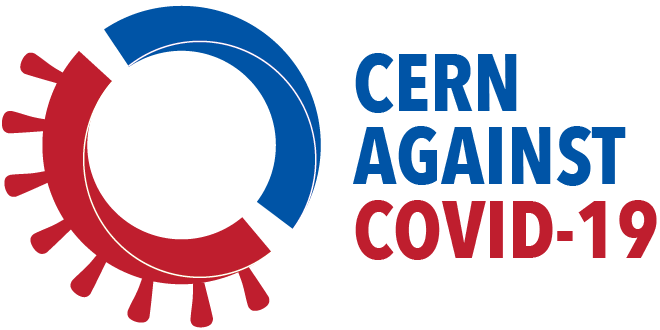Actions
Members of the CERN Community can propose initiatives by completing this form (CERN sign-in required).
Before you do so, please check this page in case your idea has already been proposed. This page will be updated regularly.
As initiatives are received and analysed by the task force, they are sorted into categories, and will be published here. These categories may evolve with time.
Actions
Medical devices
Many initiatives are underway at CERN and in the wider particle physics community to design and produce medical supplies and equipment. These range from producing sanitiser gel, to developing full-scale ventilators for use in hospitals. Other initiatives at CERN are to use workshop facilities and 3D printers to produce personal protective equipment, such as masks, components to adapt commercially available masks for clinical use, and critical components for equipment such as ventilators.
At CERN an effort has been launched to develop a high quality, low cost ventilator to address the COVID crisis. The project is known as HEV, the High-Energy physics community Ventilator, and is led by physicists and engineers from the LHCb collaboration supported by many CERN departments. The project is being developed in close collaboration with the medical community.
The CERN against COVID-19 team has learned of several more projects initiated in the physics community to design and build ventilators. Among these, CERN has provided support to the Mechanical Ventilator Milano, MVM, project, spearheaded by the Global Argon Dark Matter (GADM) collaboration and involving physicists from around the world, and to the OpenBreath project, which aims to develop and produce a scalable low-cost lung ventilator.
The CERN Open Hardware License offers a publication route for some of these projects that allows the designs to reproduced wherever there is a need, and freely adapted to comply with local regulatory frameworks. For example, designs for 3D printed masks developed at CERN have been published under the CERN Open Hardware License. As for the ventilators, zero-cost licensing to suitable partners is being investigated as a potential route to industrialisation.
- HEV - High Energy Ventilator: https://arxiv.org/pdf/2004.00534.pdf
- The MVM project: https://arxiv.org/abs/2003.10405
- Openbreath : https://www.openbreath.it/en/
Computing and data analysis
CERN is the hub of a vast global computing resource, the Worldwide LHC Computing Grid, WLCG, and is also home to the CERN openlab collaboration with key players in the IT industry. This represents a considerable potential resource for fighting the pandemic, with potential applications ranging from the support of therapy and vaccine research, to the deployment of the data-sharing platform Zenodo, and epidemic modelling.
In all of these, CERN is in close contact with the medical community through, for example, the Organization’s collaboration agreement with the World Health Organization.
Other ways in which computing resources are being deployed include the support of a Swiss-government sponsored versusvirus hackathon on 3-5 April, and the deployment of tools for distance learning such as Open Up2U, coordinated by the GÉANT partnership of European national research and education networking (NREN) organisations.
Help to society
The first tangible contribution that CERN made to tackling the emergency in the local region was to make its emergency response teams available to support local ambulance services. This began over the weekend of 28 March. Since then, initiatives have been proposed by CERN personnel who can neither work from home nor on site to contribute to the local logistical effort by using CERN’s vehicle fleet to deliver supplies to those at risk, who need more than any to self-isolate.
CERN is also evaluating its stock of personal protective equipment with a view to donating items such as masks, producing sanitiser gel, and making Perspex barriers to protect those working in public service roles, such as the gendarmeries of the Pays de Gex.
